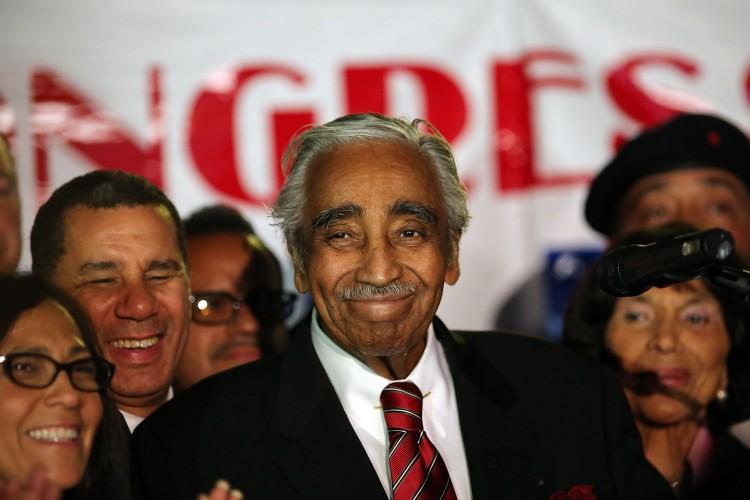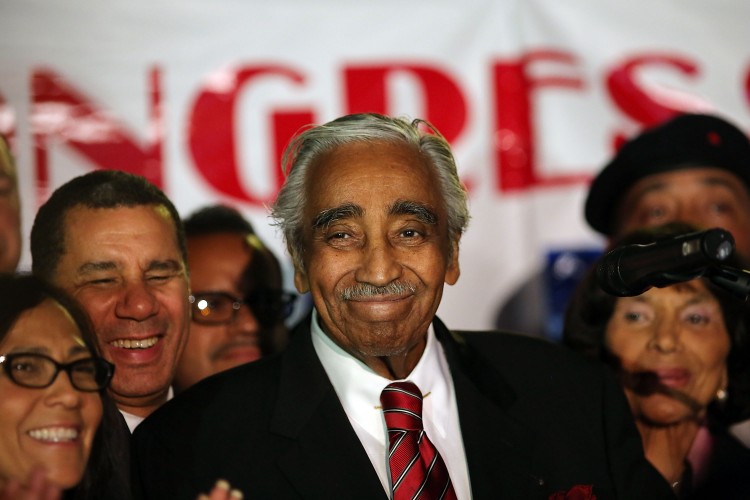NEW YORK—As the New York primary election results came in on Tuesday night, a number of closely watched races drew the close attention of political pundits looking for insight into the voting choices of East Coasters.
By far the most closely watched race was that of career Congressman Charles B. Rangel, who won despite facing tough competition by a strong challenger.
A censure for personal finance mismanagement by the Ethics Committee in 2010 had many wondering wether he could win a 22nd term.
Rangel ran in a re-drawn district in Harlem that included new areas and more Latino voters than ever before.
Challenger Assemblyman Adriano Espaillat, a Dominican-American, lost by a narrow margin of about a thousand votes, according to unofficial results reported by ABC after 93 percent of the votes were counted.
“I welcome this special privilege to serve the people of the Bronx and those in Upper Manhattan whom I have had the honor to represent in Congress in the past,” said Rangel, in a statement after his declared victory.
Roldolfo O. de la Garza, a political scientist at Columbia University, said the strong showing by a Dominican candidate suggests potential for latino candidates in future elections. Espaillat ultimately hurt himself by overstating his Dominican roots, said de la Garza.
“The Latino population may be the majority, but you got a lot of non-citizens in the population—you need to get alliances,” he added.
Espaillat was a “very attractive” candidate since he would have been the first Dominican in Congress, but “he’s attached to Albany, and many people find the dysfunction in Albany to be so unattractive,” said Christina Greer, assistant professor of political science at Fordham University’s Lincoln Center campus.
Other major races
Sixteen other races took place on Tuesday. In some cases votes will not be certified by the counties and sent to the State Board of Elections for several weeks.
“Up-and-coming Democratic Assemblyman Hakeem Jeffries trounced [Councilman] Charles Barron for an open congressional nomination in Brooklyn, demonstrating voter opposition to Barron’s often radical views and Jeffries bright political future,” said Robert Y. Shapiro, a professor of Political Science at Columbia University, in an e-mail.
Jeffries’ triumph in Brooklyn’s district eight isn’t a surprise, said Christina Greer of Fordham University. Besides lots of financial support, “he also had just a more diverse, widespread level of support from New Yorkers from all different demographics, and he represents a very attractive new-style candidate along the lines of Barack Obama, Adrian Fenty, [and] Cory Booker, so that made sense.”
In the only federal race, for the Republican challenger to U.S Senator Kirsten E. Gillibrand, attorney Wendy Long trumped Congressman Robert L. Turner. Turner won a special election last year for a Congress seat, left vacant after Anthony Weiner resigned following a scandal.
Gillibrand has “consolidated her style, her talking points, [and] her electoral victories, very, very quickly. She’s popular. She’s right where New York is on most issues. I think Wendy Long is going to have a very difficult time against her,” said David S. Birdsell, dean of Baruch University’s School of Public Affairs.
General election prospects
Looking forward to the November 6th general election, Birdsell, said “the Democrats who won their races will win the general elections—that just almost goes without saying.”
The only potential Republican win, he said, would be City Councilman Dan Halloran in Queens. Halloran will face Assemblywoman Grace Meng, who decisively won the Democratic nomination on Tuesday for a redrawn District 6, which includes a 37 percent Asian population.
Meng, who claimed 50 percent of the vote, beat both Assemblyman Rory Lancman (28 percent) Councilwoman Elizabeth S. Crowley (15 percent). If she wins the general election, she would be the first Asian-American woman to represent New York in the U.S. House of Representatives.
Election timing
The June 26 voting date was unusual, and may have affected voter turnout. A federal judge ordered the extra primary after deciding congressional primaries in September were too close to the general election in November.
“If you look across the board, the turnout was quite dismal,” said Greer. “It ’s usually quite low just for primaries in general, but … changing to the June date definitely had an adverse effect on turnout.”
The date was changed so that military personnel overseas would not have enough time to receive absentee ballots before the general election. A federal law, the Help America Vote Act, requires that ballots are mailed in at least 45 days prior to elections involving federal offices.
Some New Yorkers also aren’t around at times during the summer, which makes it even more important to think about “how and why people actually turn out to vote,” added Greer.
“For certain people it’s a single issue and for certain people it s because of a single candidate; even though [some of] these politicians may be polarizing to some, they definitely have their own bases that feel very, very strongly about them.”







